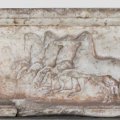The University of Queensland will play a key role in a United Nations Foundation (UNF) funded project to monitor effectiveness of the management of World Heritage listed sites.
Marc Hockings, a senior lecturer in natural systems at the University's School of Natural and Rural and Systems Management will lead the project, beginning in December.
It is a cooperative venture between the UNESCO World Heritage Centre, the World Conservation Union and the University.
The project was last month awarded US$2 million over four years by the United Nations Foundation (UNF), one of seven biodiversity-focused initiatives worldwide to receive a total of US$6 million.
The project had its genesis in 1997 research by Mr Hockings during a sabbatical at the World Conservation Monitoring Centre in Cambridge.
Although almost a tenth of the world's land is protected, little is known of the status of many of the protected areas.
The World Heritage Convention provides a potential mechanism for addressing the issue of management effectiveness in some of the world's most significant protected areas, Mr Hockings said.
"Many protected areas lack an effective system for monitoring conservation," Mr Hockings said. "As a result, site managers have difficulty prioritising actions, and donors lack good information on where to invest their resources.
"The project seeks to help to address this challenge by piloting a model for monitoring and reporting on the state of conservation management in 10 to 15 World Heritage areas in Eastern and Southern Africa, South Asia and Latin America.
"The goal is to promote a more accurate and consistent approach that can be applied to other World Heritage sites and protected areas."
For more information, contact Mr Hockings on (07) 5460 1140 or 0402024156 or Brad Turner at UQ Communications (07) 3365 2659.
.jpg)



